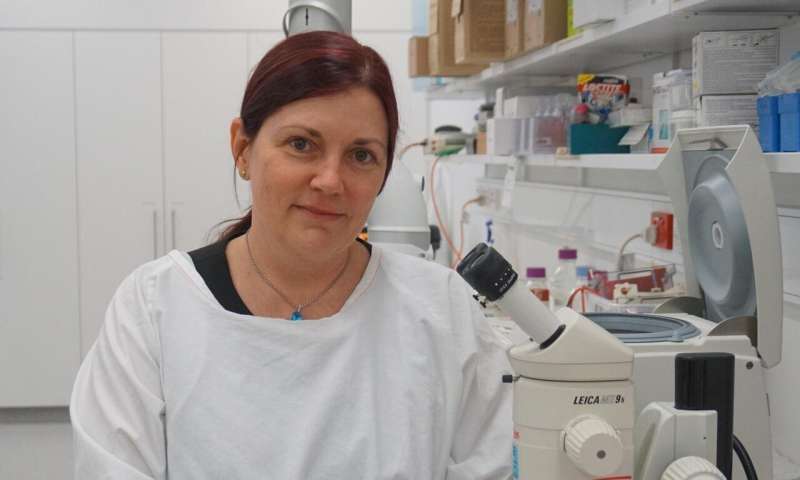Muscling in on the role of vitamin D

A recent study conducted at The Westmead Institute for Medical Research has shed light on the role of vitamin D in muscle cells. The study looked at the role of vitamin D in muscles in mice, and showed that vitamin D signaling (how cells communicate with one another) is needed for normal muscle size and strength.
Researchers found that mice missing the vitamin D receptor only in myocytes (muscle cells) had smaller muscles, and they were less strong. They also had significantly decreased running speed and didn't run as far as mice with normal vitamin D action.
Lead researcher, Professor Jenny Gunton says, "For a long time, we have known that vitamin D deficiency is associated with muscle weakness and greater risk of falls and fractures. However, whether vitamin D played a direct role in muscle wasn't known.
"We show that vitamin D receptor is present in low levels in normal muscle, and our study found that deleting muscle cell vitamin D receptors had important effects on muscle function."
Professor Gunton says that, compared to a previous study she conducted that looked at mice missing vitamin D receptors across their whole body, this new study has highlighted some important differences.
"We found that mice missing muscle cell vitamin D receptors had normal body size but less muscle mass and more fat mass.
"In terms of choosing to run on a wheel in their cage, the mice had shorter running distance and slower speed. These might contribute to the lower muscle mass and increase in fat.
In terms of muscle strength, these mice also had a significantly decreased grip strength from a very early age."
While more research is needed, Professor Gunton says that these results suggest that maintaining normal vitamin D signaling in muscle is important for preserving muscle bulk and function.
"These findings also have the potential to open up avenues to pursue new therapies that target muscle cell vitamin D receptors. These therapies could help to address or prevent age-related sarcopenia (degenerative loss of skeletal muscle mass) and other disorders related to muscle function."
The research paper was published in the Journal of Cachexia, Sarcopenia and Muscle.
More information: Christian M. Girgis et al, Mice with myocyte deletion of vitamin D receptor have sarcopenia and impaired muscle function, Journal of Cachexia, Sarcopenia and Muscle (2019). DOI: 10.1002/jcsm.12460


















